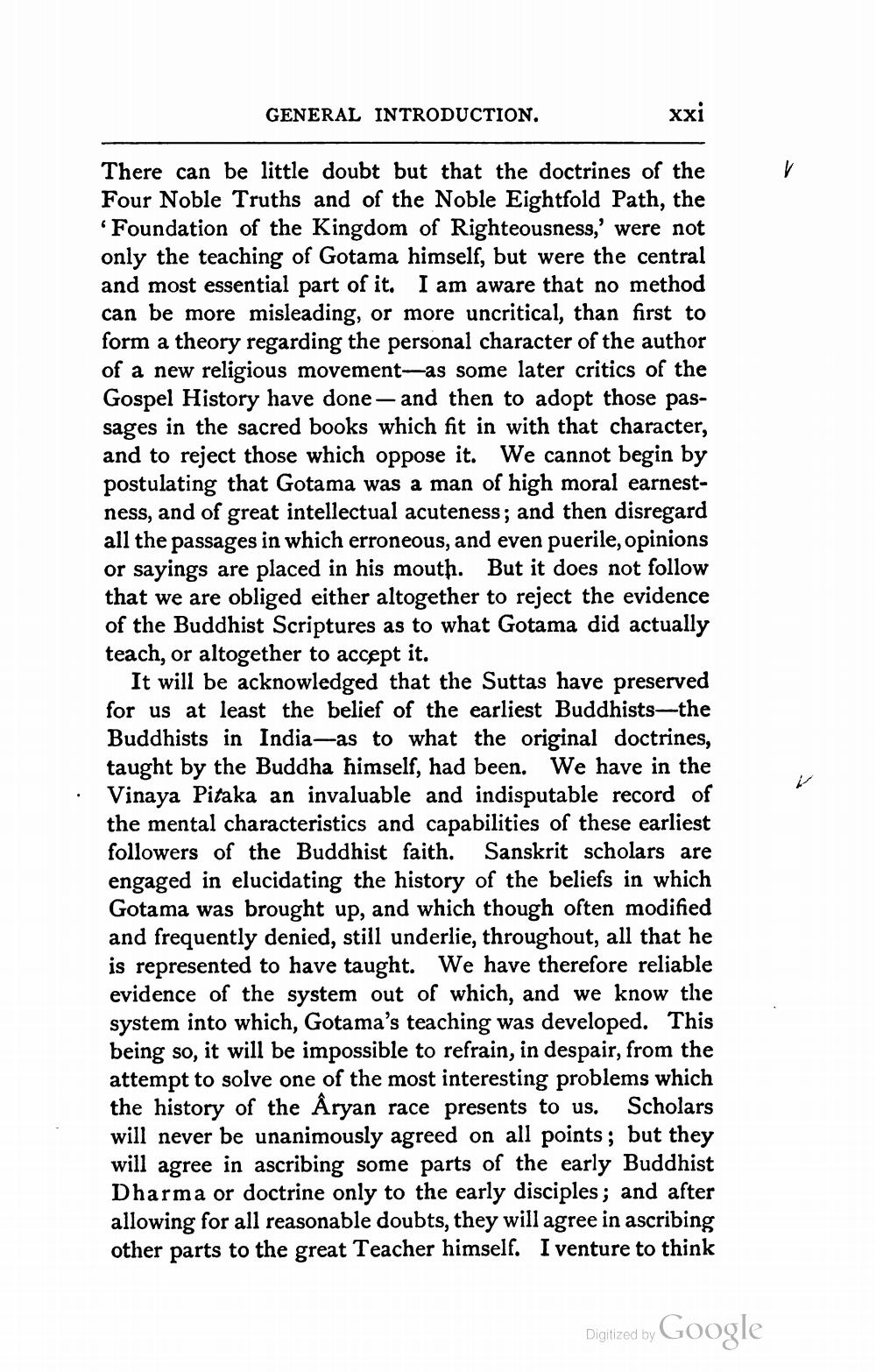________________
GENERAL INTRODUCTION.
xxi
There can be little doubt but that the doctrines of the Four Noble Truths and of the Noble Eightfold Path, the 'Foundation of the Kingdom of Righteousness,' were not only the teaching of Gotama himself, but were the central and most essential part of it. I am aware that no method can be more misleading, or more uncritical, than first to form a theory regarding the personal character of the author of a new religious movement—as some later critics of the Gospel History have done — and then to adopt those passages in the sacred books which fit in with that character, and to reject those which oppose it. We cannot begin by postulating that Gotama was a man of high moral earnestness, and of great intellectual acuteness; and then disregard all the passages in which erroneous, and even puerile, opinions or sayings are placed in his mouth. But it does not follow that we are obliged either altogether to reject the evidence of the Buddhist Scriptures as to what Gotama did actually teach, or altogether to accept it.
It will be acknowledged that the Suttas have preserved for us at least the belief of the earliest Buddhists—the Buddhists in India-as to what the original doctrines, taught by the Buddha himself, had been. We have in the Vinaya Pitaka an invaluable and indisputable record of the mental characteristics and capabilities of these earliest followers of the Buddhist faith. Sanskrit scholars are engaged in elucidating the history of the beliefs in which Gotama was brought up, and which though often modified and frequently denied, still underlie, throughout, all that he is represented to have taught. We have therefore reliable evidence of the system out of which, and we know the system into which, Gotama's teaching was developed. This being so, it will be impossible to refrain, in despair, from the attempt to solve one of the most interesting problems which the history of the Aryan race presents to us. Scholars will never be unanimously agreed on all points; but they will agree in ascribing some parts of the early Buddhist Dharma or doctrine only to the early disciples; and after allowing for all reasonable doubts, they will agree in ascribing other parts to the great Teacher himself. I venture to think
Digitized by
Digitized by Google




